- Home
- Parnell Hall
Actor Page 15
Actor Read online
Page 15
It’s hard to explain. If you’ve ever been an actor, you’ll understand, but if not, I don’t know if I can really get across how I felt.
The thing is, dreams die hard. And they come in all shapes and sizes. They’re not all winning the Academy Award. For instance, one of my dreams has always been becoming a successful enough actor to get on the Johnny Carson show, so I could ask him if he really did a Carnac joke I once heard attributed to him but could never quite believe he’d actually done on the air. Carnac, if you’ll recall, is the bit where Johnny wears a turban and is the sage, seer and soothsayer who divines the answers to questions in sealed envelopes. The answer to this particular Carnac was “Cock Robin.” The question was, “What’s in my mouth, Batman?”
With Johnny retiring, that dream had to die. But others would live on. And one of my dreams has always been to be reviewed by the New York Times.
All right, so this wasn’t the Times, it was just some crummy little local paper.
But still.
Anyway, I have to admit, as I turned the pages I was excited. Like a kid on Christmas morning. Wondering, could it be, was it really there?
It was there, all right.
I couldn’t miss it.
STAR SHINES ON PLAYHOUSE STAGE was the headline.
Underneath was a picture of Avery Allington, in full costume, striking a hopelessly theatrical pose. The picture was captioned, “TV star Avery Allington as Major Sergius Saranoff in Arms and the Man.”
The reviewer, one Harvey Frank according to his byline, began by alluding to the murder, which I guess was unavoidable.
“Wresting triumph out of tragedy,” the review began, “the playhouse has mounted a superb production of George Bernard Shaw’s Arms and the Man.” It continued:
The tragic death and apparent murder of stage manager Goobie Wheatly could not diminish the opening-night audience’s enjoyment of this delightful farce. The packed house of what one would assume were largely curiosity seekers—if the intermission conversation is any guide—saw no extracurricular theatrics develop. Instead, they were treated to one of the most delightful evenings this reviewer has seen in a long time, a thoroughly enjoyable production of Arms and the Man.
Every aspect of the production shines, from the sets and lighting of designer Joe Warden to the authentic period costumes of Mary Anne. The play is performed by a first-rate ensemble acting troupe under the skillful direction of Herbert Drake.
Leading the way is Avery Allington, star of the late, lamented ABC-TV series “Sink or Swim.” Mr. Allington plays Sergius Saranoff, a part which allows him to demonstrate his considerable talent and versatility. In the play, Major Saranoff, a dashing young military officer, is engaged to Raina Petkoff, a beautiful young Bulgarian woman, fetchingly portrayed by attractive young Margie Miller. Professing that they have found ‘the higher love,’ Mr. Allington twirls his moustache and sets his sights on Raina’s maid Louka, portrayed by pert young Nellie Knight. It is a situation fraught with comic possibilities and loaded with potential laughs, and Avery Allington delivers every one of them. Demonstrating a range far beyond what he has been able to show due to the constraints of television, Mr. Allington masterfully depicts the multifaceted Saranoff in all his bravado and bluster in a way that can only be described as achingly funny. Indeed, the audience howled throughout.
So great in fact was the hilarity, that it was not until the final curtain fell that this viewer, for one, recalled the tragedy that had resulted in this opening-night sellout. Mr. Allington had happily made me forget all that with his superb performance.
At that point the review was “continued on page fourteen.”
My fingers were numb as I turned the page. I felt like I’d been hit over the head with a sledgehammer. Good god, had Harvey Frank seen the same show I had? Had this ass-kissing, TV-star-loving son of a bitch any idea what he’d seen? All right, never mind the man’s partiality for Avery Allington. But even putting that aside, I couldn’t imagine even the world’s worst Journalism 101 student writing that review. I mean, was it possible to write a review of Arms and the Man without mentioning “the Man,” Captain Bluntschli? Had Harvey Frank really done that?
He hadn’t.
“Also good,” Mr. Frank continued on page fourteen, “were David Rothwell as Major Petkoff, Julie Katz as his wife, Catherine, Peter Constantine as the servant Nicola, and Walter Penbridge as Captain Bluntschli.”
22.
THE SHOW THAT NIGHT WAS bad. No real surprise. Second nights often are. But compared to last night’s smash opening, tonight’s was a real downer.
What made it worse was Alice was there. She’d scared up a sleepover for Tommie and driven up to see the show.
I’d taken her out to dinner and told her about it. Or at least tried to. It’s hard to tell somebody you’re good. Even your wife. Yes, Alice and I are tuned into each other and we understand, but there’s understanding and there’s understanding. I could make her see it through her eyes but not mine.
I showed her the review. Explained why it was so unfair. And not just unfair—dead wrong. While Alice sympathized and agreed, I always felt I hadn’t quite got my point across. That she couldn’t really understand, as I could, what a kick in the crotch this was. And as I sat there at dinner, not quite being able to explain it to her, the thought that finally came to me was, she’ll have to see for herself. That was the saving grace. We could talk about it after she’d seen the show.
I’d forgotten about second-night jinx.
Don’t get me wrong. Nothing disastrous happened. I didn’t forget my lines or screw up my blocking or do anything else horrendously bad. The show went reasonably well. It even got laughs—not as big or as frequently as opening night, but it still got them. It’s just the whole show was a little flat.
Of course, Alice had no way of knowing this, having nothing to compare it to. “You were great,” she said, when she came back to my dressing room right after the show.
I was in the process of changing out of my costume with the speed of light in an attempt to forestall a head-to-head confrontation between Alice and a bare-chested Nellie Knight, who had fortunately been waylaid in the greenroom by guests of her own. So I was too preoccupied to deal with such a difficult concept—no, I wasn’t great, but last night I was. I merely nodded thanks and kept on dressing, and got us the hell out of there while Nellie was still chattering away in the greenroom. But from my point of view that show sucked.
Aside from that, the evening was smooth as silk. Alice missing the “Nellie Knight Show was just part of it. She also accepted my introduction to Herbie with perfect grace and didn’t say anything along the lines of, “Oh, you’re the cradle robber, aren’t you?”
Herbie positively beamed at Alice, then pointed to me and said, “Wasn’t he good?”
“He sure was,” Alice said.
I knew better but it was not the time to argue. I contented myself with a small smile.
Perhaps mistaking my lack of enthusiasm, Herbie said, “I’m sorry about the review.”
I frowned. “Don’t be silly.”
“You gotta understand,” Herbie said. “You came in so late, and the programs had already gone out. We should have had an insert, but there wasn’t time. Anyway, I know Harvey was told; he must have just forgot.”
Oh. That’s what he meant. For a moment I’d thought he was apologizing for the review being all about Avery Allington. “Don’t worry about it,” I said.
“I’m really sorry If it’s a problem ...”
“It’s no problem, Herbie.”
“I could get him to print a retraction. I know that doesn’t help much. Not the sort of thing you want to put in your scrapbook. Say, I know. Amanda, don’t you know that editor over there? I bet you could get him to reset the column with the name Stanley Hastings. They wouldn’t print it again, but they could run you a copy and then you’d have one.”
It was humiliating at best, and I declined as politely as possible
under the circumstances. I also declined the invitation to accompany Herbie and Amanda out to Morley’s for a postshow postmortem. There were a lot of reasons, but near the top of the list was that I couldn’t really bear the thought of Avery Allington modestly accepting compliments on his review.
That and the fact I hadn’t seen Alice for some time.
I took her to my humble abode. I wasn’t aware of how humble it really was until I had the benefit of Alice’s assessment of it. I’d expected Alice to be eloquent, and she did not disappoint.
“We could go to a motel,” I suggested.
Alice cocked her head, gave me a look. “Do you know of any?”
“Not offhand.”
“I don’t recall seeing any between here and the highway.”
“We could call information.”
“From what phone?”
If there was a phone in the apprentice house, I wasn’t aware of it. There was a pay phone on the corner downtown, near the box from which I’d purchased the paper with the scurrilous review, but that didn’t seem worth mentioning.
“It’s not that bad,” I said.
Alice raised her eyebrows. “Not that bad?” She pointed. “That’s a single bed.”
It was indeed. Which hadn’t been a problem up till now.
“I know, I know,” I said.
“And there’s no bathroom.”
“It’s down the hall.”
“Great.”
“No fair on the bathroom. You knew that before you came.”
“That doesn’t make it any better.”
“Granted. But that’s the way it is. So why don’t we make the best of it?”
“You can make the best of it,” Alice said. “Me, I’m going back to New York.”
“Not just yet,” I told her.
It was like being in college again. A single bed. I think, after her initial reluctance, even Alice got a kick out of it. Not that she was willing to stay the night, and there I couldn’t blame her. But she stayed long enough to soothe the savage beast. Or is it savage breast? Or do I just have breasts on the mind lately?
Could be.
As I waved good-bye and watched her drive off in our Toyota, it occurred to me, aside from missing Nellie Knight, I was damn lucky Alice hadn’t come popping out of our communal bathroom and encountered my next-door neighbor; who just happened to be the even more nubile and attractive young apprentice, Beth.
23.
SUNDAY MORNING FOUND ME BACK in the police station.
“I got the medical report,’ Chief Bob said.
“Oh?”
“Yeah, I know. Little late to be getting it. Sy works at his own pace. Can’t hurry him. He’ll get it done in his own good time.” He shrugged. “His own good time turned out to be this morning. So we finally have the medical report.”
“What does it say?”
“Not one damn thing useful. Gilbert N. Wheatly was killed by a knife wound in the heart. What a surprise.”
“Gilbert?”
He cocked his head. “You think his given name was Goobie? Yeah, it’s Gilbert. And that’s about the only thing interesting in the report.”
“What about the time of death?”
“Nothing we don’t already know.” Chief Bob consulted his notebook. “Here’s how I dope it out. Dress rehearsal had an eight o’clock start, actually went up at eight oh four. No guesswork there—Goobie Wheatly logged it in his book. And, yes, I’ve checked out his watch and, wouldn’t you know it, it was right to the minute. Checking it out was a mere formality—with Goobie Wheatly I would have expected nothing less. So dress rehearsal went up at eight oh four.
“Act One came down at eight thirty-six. Again, according to Goobie. There was a ten-minute intermission scheduled but, being dress rehearsal, it actually ran fourteen. Because Goobie’s got Act Two logged in as taking off at eight fifty.
“Act Two ran thirty-eight minutes, came down at nine twenty-eight. There’s another ten-minute intermission that ran thirteen, then we have Act Three starting at nine forty-one.
“All those times appear to be in Goobie Wheatly’s handwriting, and there’s no reason why they shouldn’t.”
He looked up at me. “There’s no time listed for when Act Three ended, and we know why. But it ran thirty-seven minutes opening night, so the dress rehearsal was probably in the ball park. That would bring the curtain down at ten eighteen. Only it never came down, of course. But that would make ten eighteen the time you found the body. Which corresponds with everything everybody else said.”
Chief Bob lifted a paper off his desk. “And with the medical report. Which, as I say, helps not one bit.
“To continue our schedule, Herbie calls in by ten twenty-six. They reach me at home by ten thirty, I’m at the playhouse by ten thirty-seven.”
Chief Bob looked up, shook his head. “Except I’m not the medical examiner. And Sy cannot be hurried, and Sy takes his own sweet time. By the time he shows up, it’s after eleven, and by the time he gets the body temperature taken it’s eleven fifteen. Almost an hour after the body was initially found.
“And when does he estimate the time of death? In his opinion, when he examined the body it had been dead from one to two hours. Which, of course, encompasses all of Act Three. Which is no help at all.”
“Yeah,” I said. “All right, look. That’s his official report. That’s on the record. Off the record, is the guy willing to do any better than that?”
Chief Bob grimaced. “You don’t know Sy. He only does, that because it’s required of the job. But to be helpful just to be helpful? Forget it.”
“I find that hard to believe,” I said.
“Of course,” he said. “You’re from New York City, where all doctors are totally competent and everyone does everything exactly right.”
“I’m sorry,” I said. “You’re right. I don’t find that hard to believe at all.”
“Exactly,” Chief Bob said. “In New York City a guy like Sy would be lost in the shuffle. You’d never notice him. A small town like this, we only got one and he shows.
“Anyway, even if he was some colossal, super-duper, best fucking medical examiner in the world, it wouldn’t do us a bit of good, because how accurate can you get? Certainly not more than the half-hour leeway that would allow any of those actors to have killed him.”
“You figure it’s an actor?”
“However you spell it?” Chief Bob said. “Well, they’re the most likely. That’s what I’d like to do today. Discuss the relative merits of the people who were there.”
“What do you mean?”
“I mean, aside from the actors, I’m talking about everyone in the theater.”
“Well, you can toss out a whole bunch right away,” I said.
“Oh yeah? Who’s that?”
“The audience. They were sitting there when the act ended and couldn’t have done it. That’s Herbie, Amanda, the trustees, the tech director and most of the apprentices. They’re all off the hook.”
“I wish they were,” Chief Bob said.
I looked at him. “What do you mean?”
“Exactly that,” he said. “I wish there were one stinking one of them I could definitely cross off the list. The closest I can come is Amanda. She’s highly visible, she was sitting with the trustees, and I got at least two or three of ’em think she was there all the time.
“Of course, the operative word is think. But when you add in two or three separate recollections, it starts to get convincing.
“Besides, I know Amanda. I know it doesn’t mean anything legally. But just between you and me, I know Amanda, and she wouldn’t kill anybody for any reason.”
“Not even to protect her family?”
“She has no family.”
“How about her reputation?”
“Spotless, I assure you.”
“That’s exactly the kind that needs protecting.”
He looked at me in surprise. “You suspect Amanda Feinstein?”
/>
“Not at all,” I said. “I just categorically reject your assumption that she has to be innocent because you know her.”
He gave me a pained look. “Please. I’m not scratching her from the list of suspects, I’m giving you a personal opinion. I’m pointing out that, of all the people who were in the theater that night, her alibi was the best.” He cocked his head. “You read murder mysteries?”
“Yes, I do.”
“Me too. But I know the difference between what I read and what I do. Now, in a murder mystery, her having the best alibi would make her the prime suspect. In real life, it’s the other way around. Things aren’t that convoluted. She probably has a good alibi because she didn’t do it.”
I smiled.
“What’s so funny?”
“There’s a sergeant named MacAullif on the NYPD who’s always pointing things like that out to me.”
“Then I shouldn’t have to. Let’s move on. Where were we? Oh, yeah. Who could have done it—people in the audience. Okay, next least likely would be Joe Warden.”
“Who?”
“The tech director. He’s sitting there surrounded by apprentices. Almost all of them saw him sitting there, none of them saw him get up, and according to some of them he was actually asleep.”
“I wouldn’t be surprised.”
“Me either. He’d been up all night. The problem is, so had they. It’s a good bet at least some of the apprentices vouching for him dozed off too.”
“Great.”
“Hey, like I say, none of these are perfect. Take Herbie, for instance. He should have the best alibi of all, since he’s directing the show. But it’s dress rehearsal. He’s not doing anything, he’s just watching it. Watching and taking notes. And I know Herbie, ’cause I’ve been in the shows. And I know without even asking, his habit in the dress rehearsal is to sit in the very back row. Because he doesn’t want the actors to look out and see him sitting there. He sits in the very back of the theater taking notes in the glow of the exit light. Where no one would be apt to notice if he got up in the middle and slipped out the back door.”

 Clicker Training
Clicker Training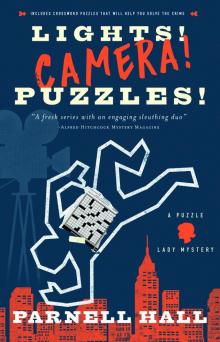 Lights! Camera! Puzzles!
Lights! Camera! Puzzles!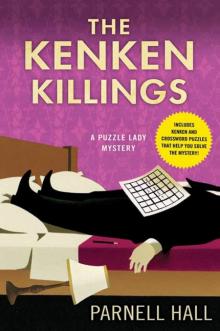 The KenKen Killings
The KenKen Killings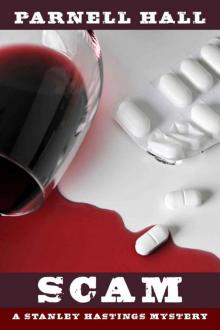 12-Scam
12-Scam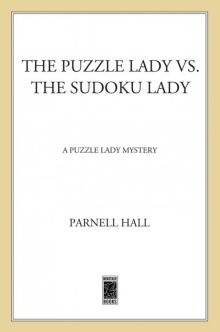 The Puzzle Lady vs. the Sudoku Lady
The Puzzle Lady vs. the Sudoku Lady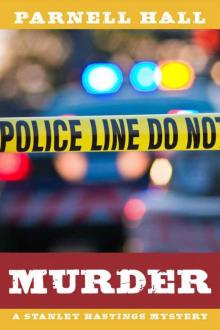 2 Murder
2 Murder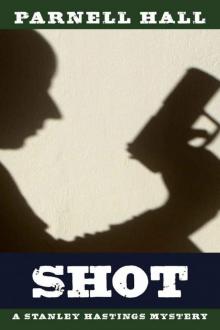 7 Shot
7 Shot You Have the Right to Remain Puzzled
You Have the Right to Remain Puzzled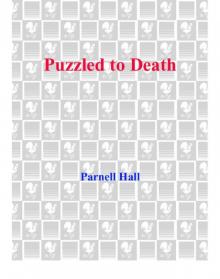 Puzzled to Death
Puzzled to Death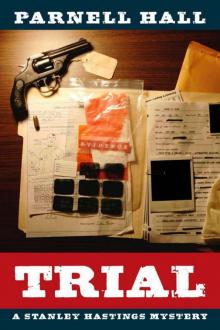 11-Trial
11-Trial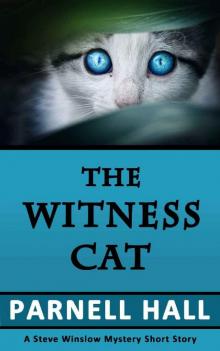 The Witness Cat (Steve Winslow Mystery)
The Witness Cat (Steve Winslow Mystery) With This Puzzle, I Thee Kill
With This Puzzle, I Thee Kill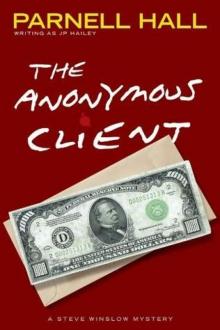 The Anonymous Client sw-2
The Anonymous Client sw-2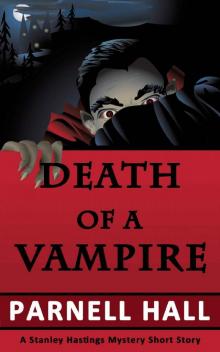 Death of a Vampire (Stanley Hastings Mystery, A Short Story)
Death of a Vampire (Stanley Hastings Mystery, A Short Story)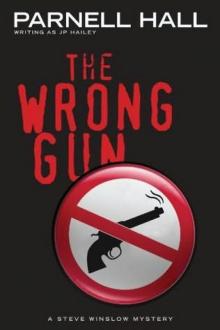 The Wrong Gun sw-5
The Wrong Gun sw-5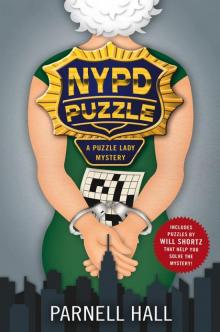 NYPD Puzzle
NYPD Puzzle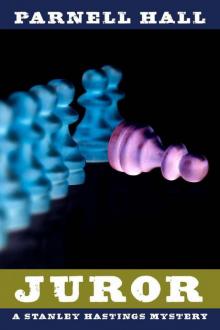 6 Juror
6 Juror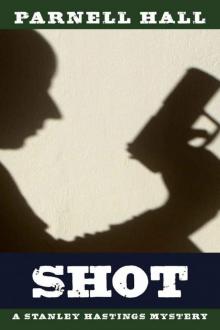 07-Shot
07-Shot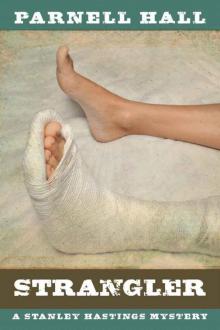 04-Strangler
04-Strangler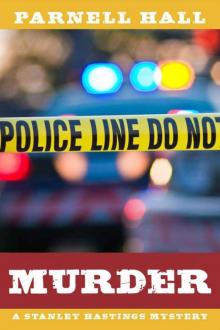 02-Murder
02-Murder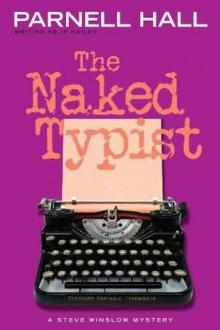 SW04 - The Naked Typist
SW04 - The Naked Typist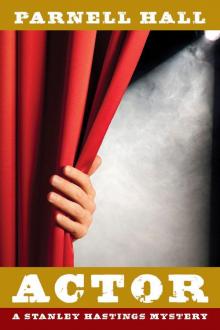 Actor
Actor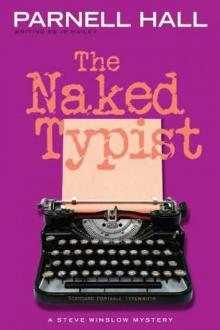 The Naked Typist sw-4
The Naked Typist sw-4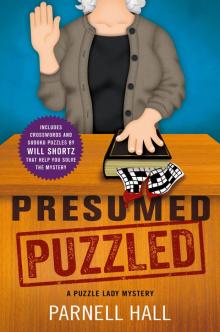 Presumed Puzzled
Presumed Puzzled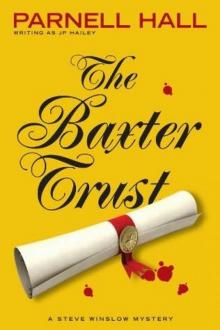 SW01 - The Baxter Trust
SW01 - The Baxter Trust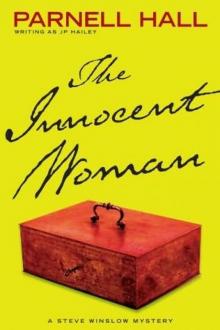 SW06 - The Innocent Woman
SW06 - The Innocent Woman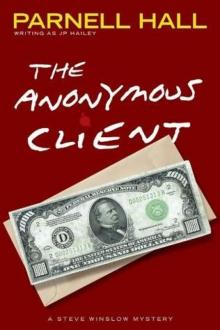 SW02 - The Anonymous Client
SW02 - The Anonymous Client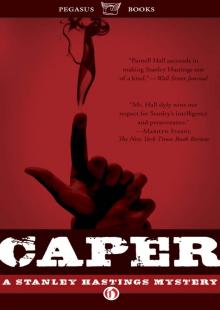 Caper
Caper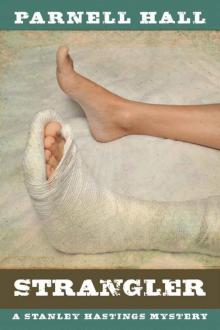 4 Strangler
4 Strangler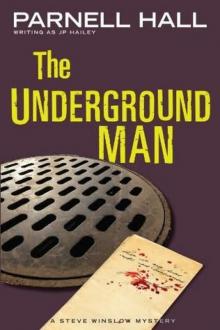 The Underground Man sw-3
The Underground Man sw-3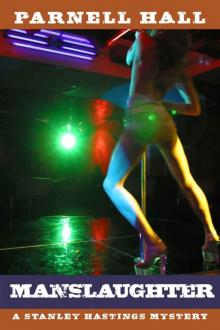 Manslaughter (Stanley Hastings Mystery, #15)
Manslaughter (Stanley Hastings Mystery, #15)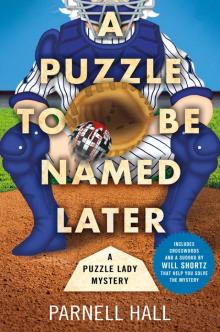 A Puzzle to Be Named Later--A Puzzle Lady Mystery
A Puzzle to Be Named Later--A Puzzle Lady Mystery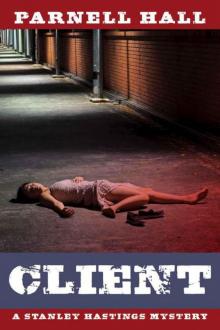 05-Client
05-Client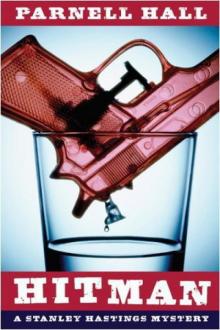 16 Hitman
16 Hitman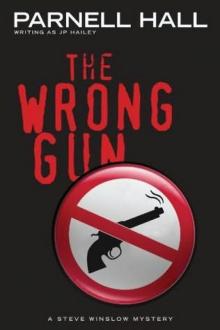 SW05 - The Wrong Gun
SW05 - The Wrong Gun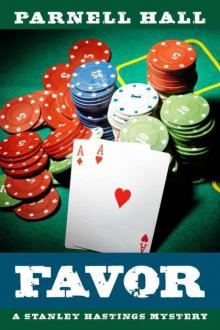 3 Favor
3 Favor Last Puzzle & Testament
Last Puzzle & Testament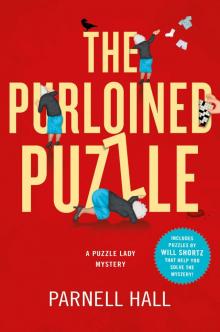 The Purloined Puzzle
The Purloined Puzzle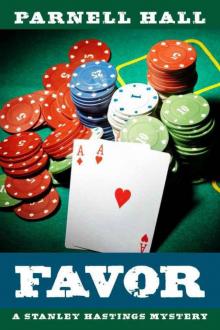 03-Favor
03-Favor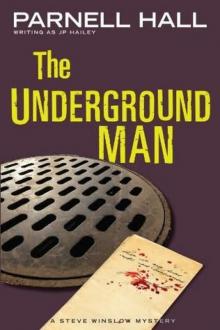 SW03 -The Underground Man
SW03 -The Underground Man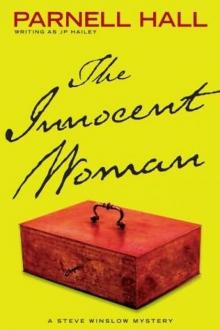 The Innocent Woman sw-6
The Innocent Woman sw-6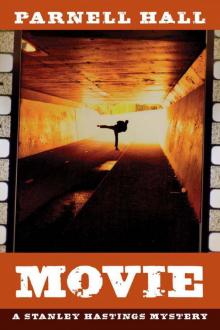 10 Movie
10 Movie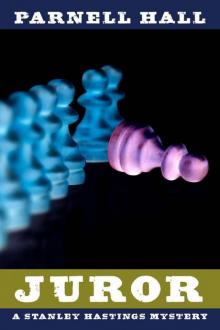 06-Juror
06-Juror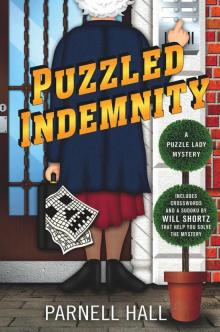 Puzzled Indemnity
Puzzled Indemnity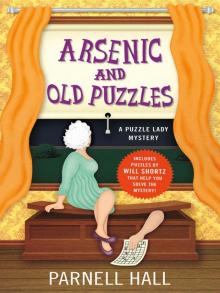 Arsenic and Old Puzzles
Arsenic and Old Puzzles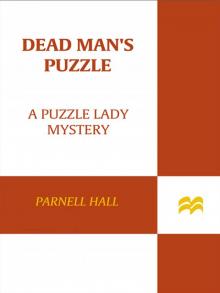 Dead Man's Puzzle
Dead Man's Puzzle Safari
Safari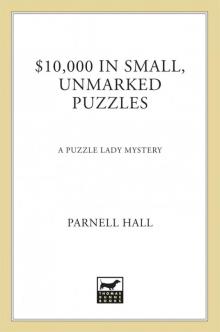 $10,000 in Small, Unmarked Puzzles
$10,000 in Small, Unmarked Puzzles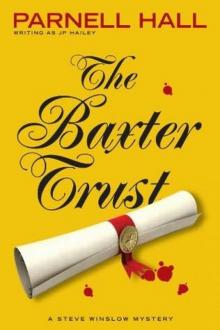 The Baxter Trust sw-1
The Baxter Trust sw-1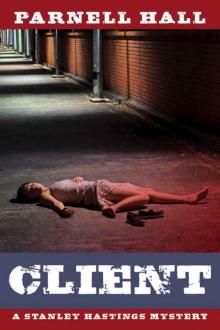 5 Client
5 Client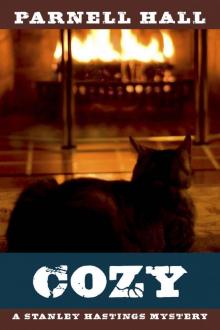 Cozy (Stanley Hastings Mystery, #14)
Cozy (Stanley Hastings Mystery, #14)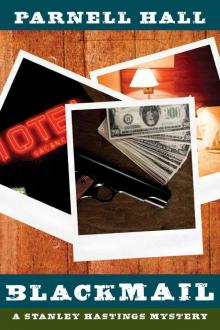 Blackmail
Blackmail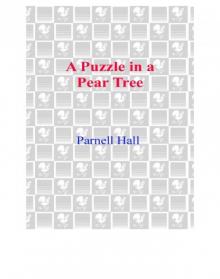 A Puzzle in a Pear Tree
A Puzzle in a Pear Tree A Clue for the Puzzle Lady
A Clue for the Puzzle Lady Clicker Training (Stanley Hastings Mystery, A Short Story)
Clicker Training (Stanley Hastings Mystery, A Short Story)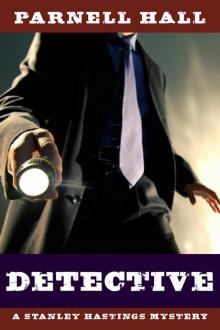 Detective (Stanley Hastings Mystery Book 1)
Detective (Stanley Hastings Mystery Book 1)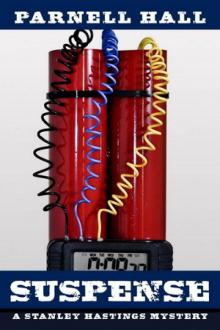 13 Suspense
13 Suspense